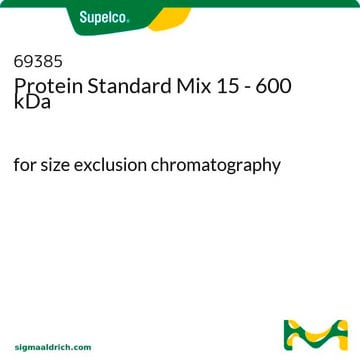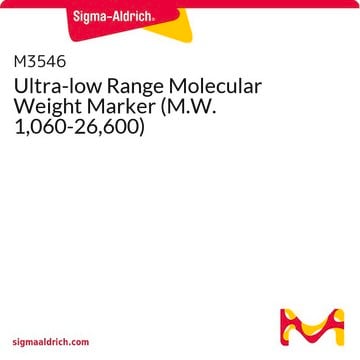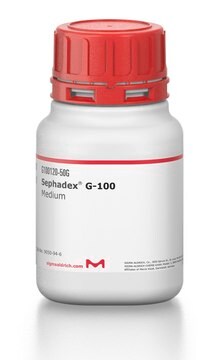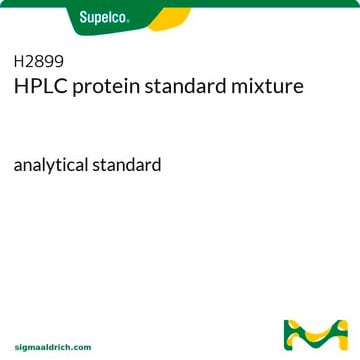MAB5372
Anti-Astrocytomas Antibody, a marker for Low Grade Astrocytoma, clone J1-31
ascites fluid, clone J1-31, Chemicon®
About This Item
Polecane produkty
pochodzenie biologiczne
mouse
Poziom jakości
forma przeciwciała
ascites fluid
rodzaj przeciwciała
primary antibodies
klon
J1-31, monoclonal
reaktywność gatunkowa
guinea pig, rat, human, mouse
producent / nazwa handlowa
Chemicon®
metody
immunocytochemistry: suitable
immunohistochemistry: suitable (paraffin)
western blot: suitable
izotyp
IgM
Warunki transportu
dry ice
docelowa modyfikacja potranslacyjna
unmodified
Specyficzność
Monoclonal antibody J1-31 was raised against crude homogenate of brain tissue from a multiple sclerosis (MS) patient (autopsy sample; Malhotra et al.: Microbios Letters 26:151-157, 1984). In human brain, MAb J1-31 recognizes an intracellular protein antigen (J1-31 antigen), which bands at approximately 30,000 daltons under reducing conditions for sodium dodecyl sulfate gel electrophoresis (Singh et al.: Bioscience Reports 6:73-79, 1986). By immunofluorescence microscopy, MAb J1-31 stains those cells that are also stained by antiserum to glial fibrillary acidic protein (GFAP), namely astrocytes, retinal Muller cells, and tanycytes in the ependyma (Predy et al.: Bioscience Reports 7:491-502, 1987). In addition, MAb J1-31 stains ciliated ependymal cells that do not express GFAP {Malhotra, SK (1989) J Neurosci Res. 22(1):36-49}.
Immunogen
Zastosowanie
Neuroscience
Neuronal & Glial Markers
Immunohistochemistry The antibody works on paraffin embedded tissue sections.
Immunocytochemistry
Optimal working dilutions must be determined by the end user.
Powiązanie
Postać fizyczna
Przechowywanie i stabilność
Informacje prawne
Oświadczenie o zrzeczeniu się odpowiedzialności
Nie możesz znaleźć właściwego produktu?
Wypróbuj nasz Narzędzie selektora produktów.
Kod klasy składowania
10 - Combustible liquids
Klasa zagrożenia wodnego (WGK)
WGK 1
Temperatura zapłonu (°F)
Not applicable
Temperatura zapłonu (°C)
Not applicable
Certyfikaty analizy (CoA)
Poszukaj Certyfikaty analizy (CoA), wpisując numer partii/serii produktów. Numery serii i partii można znaleźć na etykiecie produktu po słowach „seria” lub „partia”.
Masz już ten produkt?
Dokumenty związane z niedawno zakupionymi produktami zostały zamieszczone w Bibliotece dokumentów.
Nasz zespół naukowców ma doświadczenie we wszystkich obszarach badań, w tym w naukach przyrodniczych, materiałoznawstwie, syntezie chemicznej, chromatografii, analityce i wielu innych dziedzinach.
Skontaktuj się z zespołem ds. pomocy technicznej







